Mathematical Modeling
Results for "mathematical modeling"
 Status: PreviewPreview
Status: PreviewPreviewSkills you'll gain: Algorithms, Technical Communication, Pseudocode, Computational Thinking, Solution Design, Programming Principles, Software Design, Theoretical Computer Science, Data Structures, Mathematical Modeling, Applied Mathematics, Computer Science
4.4·Rating, 4.4 out of 5 stars24 reviewsBeginner · Course · 1 - 4 Weeks
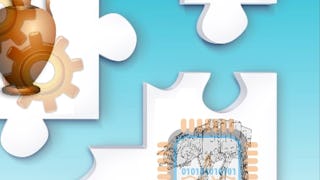 I
IInstituto Tecnológico de Aeronáutica
Skills you'll gain: Control Systems, Automation Engineering, Simulation and Simulation Software, Computational Logic, Matlab, Process Control, Numerical Analysis, Embedded Systems, Engineering Analysis, Electrical and Computer Engineering, Mathematical Modeling, System Design and Implementation, Digital Design, Differential Equations, Linear Algebra
Intermediate · Course · 1 - 4 Weeks
 Status: FreeFreeA
Status: FreeFreeAAmerican Museum of Natural History
Skills you'll gain: Health Disparities, Social Determinants Of Health, Infectious Diseases, Immunology, Epidemiology, Public Health, Pathology, Microbiology, Mathematical Modeling, Molecular Biology, Taxonomy, Cell Biology, Diagnostic Tests, Clinical Trials
4.8·Rating, 4.8 out of 5 stars47 reviewsIntermediate · Course · 1 - 3 Months
 Status: Free TrialFree TrialU
Status: Free TrialFree TrialUUniversity of Colorado Boulder
Skills you'll gain: Semiconductors, Advanced Mathematics, Materials science, Physics, Physical Science, Mathematical Modeling
4.9·Rating, 4.9 out of 5 stars12 reviewsBeginner · Course · 1 - 4 Weeks
 Status: PreviewPreviewI
Status: PreviewPreviewIISAE-SUPAERO
Skills you'll gain: Finite Element Methods, Structural Analysis, Vibrations, Engineering Analysis, Mathematical Modeling, Mechanical Engineering, Linear Algebra, Numerical Analysis, Applied Mathematics, Control Systems, Differential Equations
4.4·Rating, 4.4 out of 5 stars13 reviewsIntermediate · Course · 1 - 3 Months
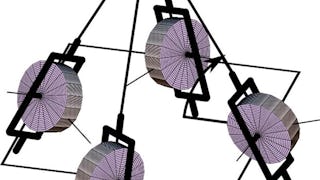 Status: Free TrialFree TrialU
Status: Free TrialFree TrialUUniversity of Colorado Boulder
Skills you'll gain: Engineering Analysis, Vibrations, Mechanics, Finite Element Methods, Differential Equations, Control Systems, Applied Mathematics, Mathematical Modeling, Linear Algebra, Calculus
4.8·Rating, 4.8 out of 5 stars11 reviewsAdvanced · Course · 1 - 4 Weeks
 Status: PreviewPreviewT
Status: PreviewPreviewTTechnical University of Denmark (DTU)
Skills you'll gain: Chemistry, Sustainable Engineering, Waste Minimization, Chemical Engineering, Process Engineering, Thermal Management, Environmental Engineering, Analytical Chemistry, Materials science, Analytical Testing, Chemical and Biomedical Engineering, Laboratory Testing, Laboratory Research, Mathematical Modeling
4.8·Rating, 4.8 out of 5 stars27 reviewsIntermediate · Course · 1 - 3 Months
 Status: Free TrialFree TrialU
Status: Free TrialFree TrialUUniversity of Colorado System
Skills you'll gain: Estimation, Applied Mathematics, Numerical Analysis, Mathematical Modeling, Control Systems, Simulation and Simulation Software, Probability & Statistics, System Implementation, Computer Programming Tools
Intermediate · Course · 1 - 4 Weeks
 U
UUniversity of Colorado Boulder
Skills you'll gain: Semiconductors, High Voltage, Power Electronics, Electronics Engineering, Electronics, Electronic Components, Electrical Engineering, Mathematical Modeling, Simulation and Simulation Software, Engineering Calculations
Build toward a degree
Intermediate · Course · 1 - 4 Weeks
 Status: PreviewPreviewT
Status: PreviewPreviewTThe Chinese University of Hong Kong
Skills you'll gain: Operations Research, Process Improvement and Optimization, Process Optimization, Algorithms, Complex Problem Solving, Mathematical Modeling, Data Transformation, Computational Logic, Operational Efficiency, Performance Tuning, Business Logic, Programming Principles, Theoretical Computer Science, Linear Algebra
Intermediate · Course · 1 - 4 Weeks
 Status: PreviewPreviewU
Status: PreviewPreviewUUniversity of Colorado Boulder
Skills you'll gain: Climate Change Programs, Environment, Systems Thinking, Cultural Sensitivity, Geographic Information Systems, Hydrology, Climate Change Adaptation, Environmental Monitoring, International Relations, Mathematical Modeling, Physical Science, Environmental Science, Biology, Scientific Methods, Physics, Research, Data Collection, Chemistry
4.8·Rating, 4.8 out of 5 stars18 reviewsBeginner · Course · 1 - 3 Months
 Status: PreviewPreviewU
Status: PreviewPreviewUUniversity of Leeds
Skills you'll gain: Resource Allocation, Operations Research, Production Planning, Graph Theory, Data-Driven Decision-Making, Decision Making, Mathematical Modeling, Process Optimization, Network Planning And Design, Complex Problem Solving, Computational Logic, Algorithms, Linear Algebra, Cryptography
Beginner · Course · 1 - 4 Weeks
Most popular
 Status: PreviewPreviewS
Status: PreviewPreviewSStanford University
Course
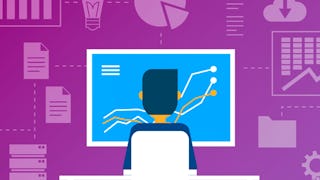 Status: Free TrialFree TrialU
Status: Free TrialFree TrialUUniversity of Pennsylvania
Specialization
 Status: Free TrialFree TrialD
Status: Free TrialFree TrialDDuke University
Specialization
 Status: Free TrialFree TrialU
Status: Free TrialFree TrialUUniversity of Pennsylvania
Specialization
Trending now
 Status: Free TrialFree TrialD
Status: Free TrialFree TrialDDeepLearning.AI
Specialization
 Status: Free TrialFree TrialD
Status: Free TrialFree TrialDDeepLearning.AI
Course
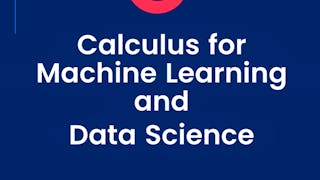 Status: Free TrialFree TrialD
Status: Free TrialFree TrialDDeepLearning.AI
Course
 Status: Free TrialFree TrialR
Status: Free TrialFree TrialRRice University
Specialization
New releases
 Status: PreviewPreview
Status: PreviewPreviewCourse
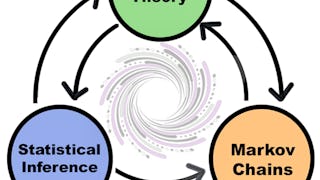 Status: Free TrialFree TrialU
Status: Free TrialFree TrialUUniversity of Colorado Boulder
Build toward a degree
Specialization
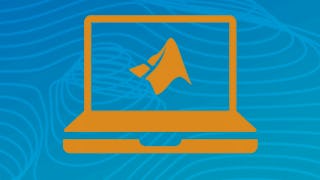 Status: Free TrialFree TrialM
Status: Free TrialFree TrialMMathWorks
Specialization
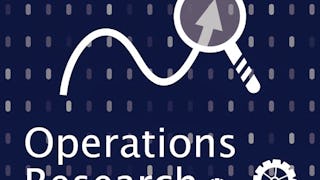 Status: Free TrialFree TrialN
Status: Free TrialFree TrialNNational Taiwan University
Specialization







